Tag: hair loss
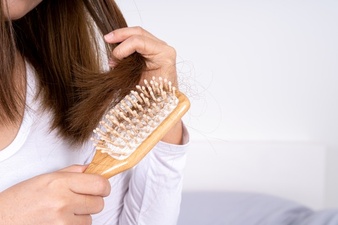
How To Spot Hair Loss Early
It may seem inevitable. At some point when we get “old”, men’s hairlines will recede and may start balding on the crown, and women's hair will start thinning, usually starting at the crown or natural parting. But for many, this transition away from a full head of healthy-looking hair occurs earlier than expected, often to men as young as in their early twenties. In the society that we live in, hair loss holds such an important place, with hairstyles denoting your trendiness, and healthy, voluminous hair being applauded. In light of this, early hair loss (or any hair loss for that matter) can create feelings of worry, sadness, anxiety, and self-consciousness, as it’s perceived as a negative bodily change that is out of our control. However, as we’ll explore in this article, this is not true: halting hair loss and getting a fuller head of hair is actually within our control, even if we have a genetic predisposition to balding. Male baldness that occurs gradually and is caused by genetics or the male sex hormones is known as “pattern” baldness or alopecia androgenetica. It is more likely to affect you the older you are and occurs in approximately 67% of men over their lifetime. Usually, the marked changes occur gradually, although changes can occur rapidly depending on genes and other bodily or environmental factors. Male pattern baldness tends to occur because of the interaction with DHT and the hair follicles in the scalp. Some testosterone is converted to DHT (dihydrotestosterone) in the body, but this can cause the hair follicles in the head to shrink in diameter, meaning the hair strands are thinner and more brittle. Additionally, DHT has the effect of speeding up the hair growth cycle, meaning that hair sheds quicker. A common assumption is therefore that high levels of testosterone equate to high DHT, and this causes more hair loss, but instead, hair loss is determined by the sensitivity of the scalp to DHT. This can be down to individual differences, but it is more likely that it is passed down genetically. With hair loss, it’s important to acknowledge the early signs as soon as you can, as acting early will give you the best chance of preventing hair loss and regrowing hair to your liking. Appropriate treatment can help to block DHT or stimulate the hair follicles for regrowth. Likely causes of your hair loss: There are several possible factors that affect hair loss, some more than others. Here is the full list, below: Genes - Male baldness is also sometimes called hereditary baldness as genetics play a large role in determining the likelihood of your future hair loss. Pay close attention to the patterns in your family in terms of hair loss, as this will give you a good indication of whether you’ll likely experience symptoms. Age - The release of hormones changes throughout the course of your life, and hormones associated with aging slow hair production and may result in balding. Smoking - Smoking cigarettes may cause the blood to circulate less in the hair follicles, getting in the way of natural hair growth and causing damage to the scalp. Early research points to this as true, although more research is needed for this factor to be conclusively outlined as a key contributor. Stress - When you face stress, your body releases cortisol as a response. This is fine in moderation, but extended periods of stress, or periods of extremely intense stress, can cause cortisol levels to interfere with non-essential bodily functions, such as head hair growth. Therefore, stress can be a contributing factor to hair loss. In the event of a significantly stressful period, the body might experience a condition called telogen effluvium. This is characterized by sudden hair loss 3 to 6 months after the stressful event, caused by the body halting production of hair and transitioning all hair into the resting phase, meaning the strands will then fall out almost simultaneously. Depression - The association with depression and hair loss is twofold. Not only might the prolonged bouts of stress result in hair loss, but medication for depression may also cause hair loss as a side effect. Identifying Hair Loss Early: Common signs linked to hair loss: Receding hairline - An early indication of male pattern baldness is when the front of your hairline recedes. Typically, the center front of your hair will stay, with curved portions on either side receding back, forming a W sort of shape. Usually, men experience a receding hairline after they’re 25 years old, with it going back until eventually bald or mostly bald, but can also occur in younger men. It doesn’t tend to affect women. Thinning hair - A slightly more initially subtle form of hair loss, men might experience hair all over their head thinning, each strand reducing in diameter and perhaps revealing the scalp more visibly. Whilst receding hair tends to begin from the front of the head, thinning hair typically starts at the crown, before working its way outwards circularly. Because this eventuality is not in as noticeable a location to the individual sufferer, this type of hair loss might go untreated for longer than it should, reducing the chance of medication fully restoring the hair. Checking in the mirror periodically will help keep an eye on the hair health of your crown. There are a number of unrelated signs that are often mistaken as being indicative of early hair loss. These factors have no correlation with hair loss, and include the following: Hairs on the pillow - Healthy adults shed roughly 50 to 100 hairs per day, so seeing the odd hair on your pillow is to be expected. A white blob on the hair strand - This white dot can sometimes be seen on the root end of a fallen-out hair and means nothing other than the hair fell out during the resting phase. Widow’s peak hairline - This is a particular appearance of the hairline where it forms a point at the front of the head. It may be interpreted as an early sign of receding since the sections on either side of the hairline will be further back, but this is not the case. The widow’s peak hairline is not in any way a precursor to hair loss, but keep a close eye on whether the hairline remains in the same location or appears to be moving back, in which case this may be receding. Read Also: What To Know About Laser Hair Removal Utica NY Top 5 foods for healthier and thicker hair Best Hair Loss Treatment: 5 Questions to Ask Yourself Before Getting One
READ MOREDetails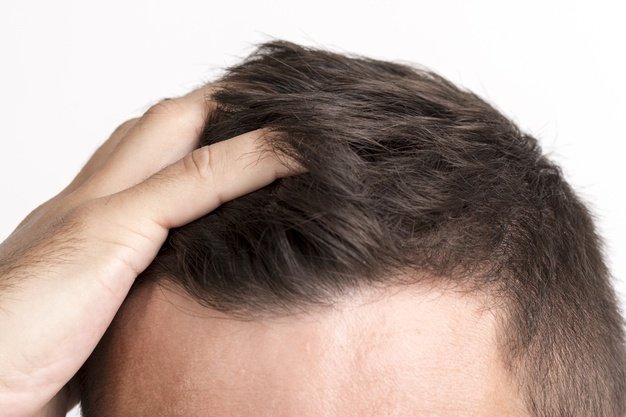
Hair Loss Causes, Symptoms and Treatment
Many people in the world suffer from the problem of hair loss. The reason can be heredity, accident, stress, anxiety, and many other people in America can go for hair loss treatment California so that the problem of loss can be controlled, and gradually eliminated. Hair loss occurs typically for everybody, but it is replaced by new hair. When this does not happen, then the loss can make the person bald. Hair Loss Causes, Symptoms, and Treatment: Causes of hair loss: If a person feels that he is losing hair, but new hair is not taking their place, he/she can go to a doctor who will diagnose the reason for the new hair not growing. Heredity is the most common cause of people losing hair and becoming bald. Other causes of hair loss can be surgery, traumatic events, stress, anxiety, etc. Hormonal changes can also result in hair loss, but they can be temporary. The hormonal changes can occur because of childbirth, pregnancy, menopause, etc. Other causes can be high blood pressure, depression, arthritis, heart problems, etc. Most of the hair products that we use are driven by marketing and advertising. We see our favourite celebs endorsing them and do not think twice about putting such harmful chemical-laden products in our hair. It is essential that we only use dermatologist recommended products at all times. If you are in doubt, get an appointment with an experienced dermatologist and then buy hair care products like shampoos and conditioners according to their prescription. The dermatologist will take into account your pre-existing conditions, your hair-type, scalp issues, and more. Symptoms of hair loss: There are many symptoms, which show that the person is losing hair. These symptoms are Thinning of hair on the top Patchy bald spots on the head Hair loss started suddenly and was not replaced by new hair Hair loss in the whole body Treatment of hair loss: There are various methods, which can be done to control and eliminate the problem of baldness. The treatment depends on the causes and symptoms of hair fall. Some of these treatments have been discussed here. Medication: This is the first thing that dermatologists prefer, and they prescribe Over-the-counter (OTC) medication. This medication includes creams and gels, which the person has to apply directly to his scalp. Minoxidil is one of the main ingredients in the cream and gel. This ingredient has some side effects like irritation. This can also lead to hair growth on the forehead and face. Oral medication can also be prescribed if the dermatologist sees the symptoms of baldness. If medication is not helpful, then other procedures can be adopted to stop hair loss. Hair transplant surgery: In this surgery, hair is planted along with small pieces of the skin on the parts of the scalp where there is no hair growth. This process is good for those people who have the hereditary problem of hair loss. The patient needs to go through multiple surgeries so that all the bald portions can be covered with hair. Scalp reduction: In this process, those portions of the scalp are removed which have no hair. These areas are closed by using the skin of those parts that have hair. The flap is another option in which a part of the scalp that has hair is placed on the bald part of the scalp. Conclusion: These are the causes and symptoms of hair fall, and treatment is not very easy if there is no effect of medication. The patient has to undergo many surgeries so that hair can be transplanted, and the patient starts looking smart again. Read Also: How Can You Let Your Hair Regrow Naturally? 6 Proven Ways To Deal With Hair Loss For Women What To Know About Laser Hair Removal Utica NY
READ MOREDetails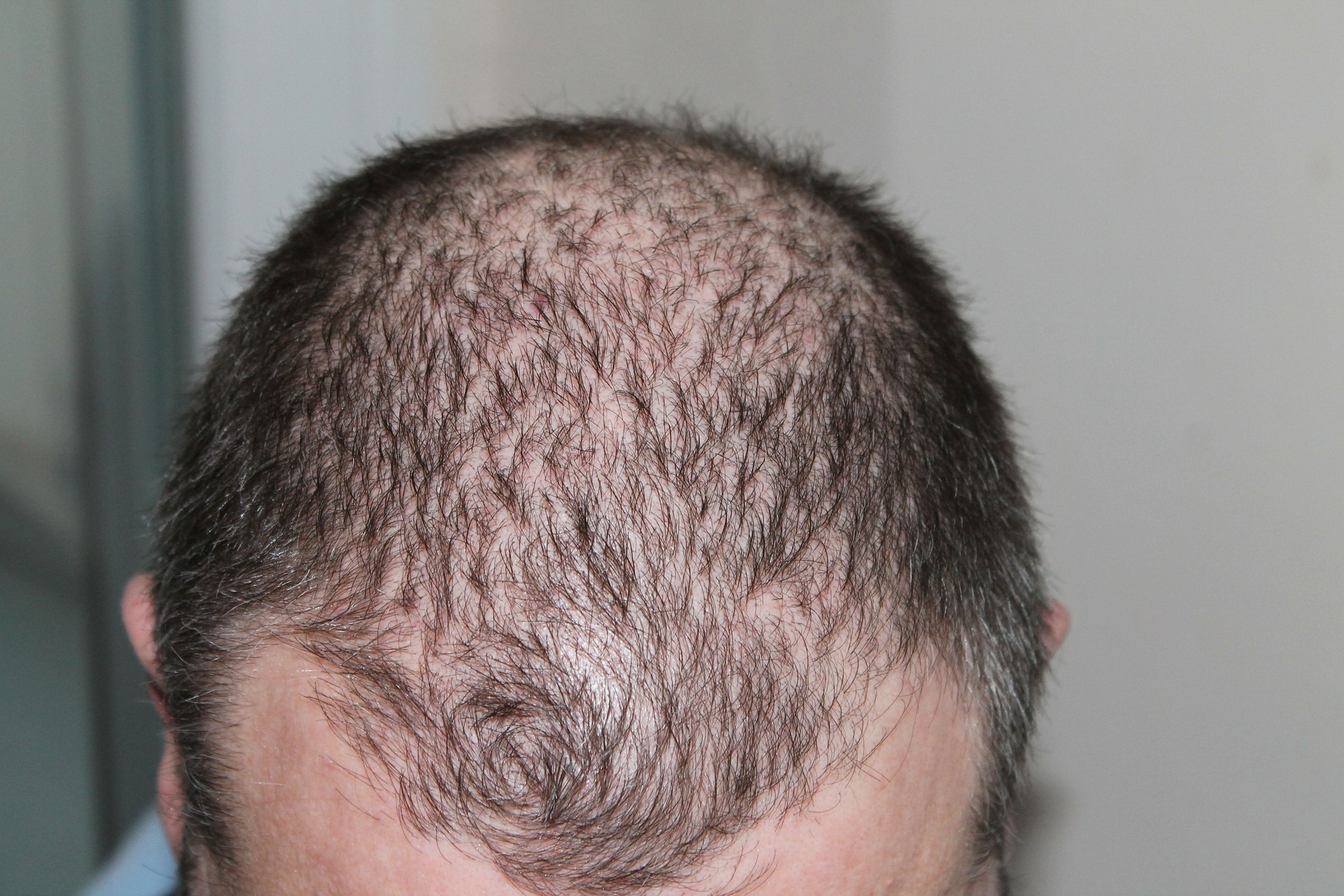
Best Hair Loss Treatment: 5 Questions to Ask Yourself Before Getting One
Losing hair is such a terrible thing to happen to anyone. Hair is an important part of your body, and losing it can hurt your self-esteem. It is, after all, your crowning glory. Your hair contributes to your overall look. You often use your hair to express your individuality through style, color, and length. Best Hair Loss Treatment: 5 Questions to Ask Yourself Before Getting One What can you do when your hair starts thinning? A hair loss treatment might be the answer. However, before getting one, ask yourself these questions first: 1. Do you really need the treatment? Like plastic surgery, hair loss treatment is an elective procedure. It’s not like a medical emergency that is urgent. You get a hair loss treatment because you wanted to and not because your life is at risk if you don’t push through with it. Thinning hair is something a lot of people will experience when they grow older. It happens due to a lot of reasons, such as medications, illnesses, styling habits, and genetics. The most common cause is androgenic alopecia (male or female pattern baldness). It’s a condition where the hair follicles on your scalp can no longer produce hair. If your hair is starting to thin and you’re bothered by it, seek professional consultation. Most healthcare service clinics such as Vera Clinic offer free consultations so you know your options. 2. Why do you want to get a hair loss treatment? Well, obviously, because you want to have a head full of hair again. But, what’s the real reason why you absolutely need to have a hair loss treatment? Is hair loss disrupting your normal day-to-day activities? Is the thinning of your hair causing you to lose confidence in yourself? Will the loss of your hair cause your whole world to change or is it all in your imagination? Will a hair loss treatment help you function normally again? Take a deep breath and try to think things through. Sometimes, negative feelings could just be clouding you, or maybe you miss styling your hair. If you think that you have a good reason to undergo the treatment, then by all means proceed with it. 3. Can you afford it? Hair loss treatments can be affordable or expensive. It will depend on the kind of treatment you get and where you will get it. There are temporary treatments and permanent ones. There are over-the-counter drugs that are used for topical applications to slow down the thinning of hair or promote hair growth. Permanent treatments such as hair transplants are expensive; these are surgical procedures done in cosmetics clinics. Health insurance does not cover cosmetic procedures, including hair loss treatments. So, if you’re seeking to treat your problem, your funds have to come from your bank account. Consider your other expenses, too. Remember that your emergency funds are not for hair loss treatments. 4. Are you physically and mentally ready to receive a hair loss treatment? Consider your health whether you plan to use over-the-counter drugs, topical solutions, or transplants. Research the ingredients of the medicines, creams, or ointments. See if you are allergic to any of them. Additionally, you may not be eligible for a hair transplant if you have certain health conditions. You cannot undergo surgery if you have: Diabetes Hypertension Heart problems Skin or scalp disorders Psychological conditions Mental readiness is also crucial when getting a hair transplant. It doesn’t matter if your body is able; if your mind is not ready, you feel scared, or you’re unprepared for the outcome, don’t do it. Hair transplants can cause scars on your scalp, so you need to be able to live with it. Also, not everyone can have a hair transplant. Only those with thinning hair are eligible for the procedure. If you’re already completely bald, then maybe you can opt for topical solutions or drugs to regrow your hair. 5. Do you have the time for recovery? Hair transplants, like any other cosmetic surgeries, require some recovery time. It’s important to have the time for rest to lessen the risk of complications after getting the surgery. Your recovery period can affect your other daily activities, such as work and family time. It’s also another reason to consider whether you have the money for a significant procedure. Since you will require time off of work, then it means you won’t have a salary unless you have a passive source of income. If your hair starts thinning and you’re worried about being completely bald, there are many hair loss treatment options for you. Take the above things into consideration before getting one. Hair loss treatment should not be a decision to make out of the blue, you should always take time and consider all of your options stated Sydney PRP hair treatment clinic. Read Also: Proven Ways To Grow Hair Faster And Stronger 6 Proven Ways To Deal With Hair Loss For Women
READ MOREDetails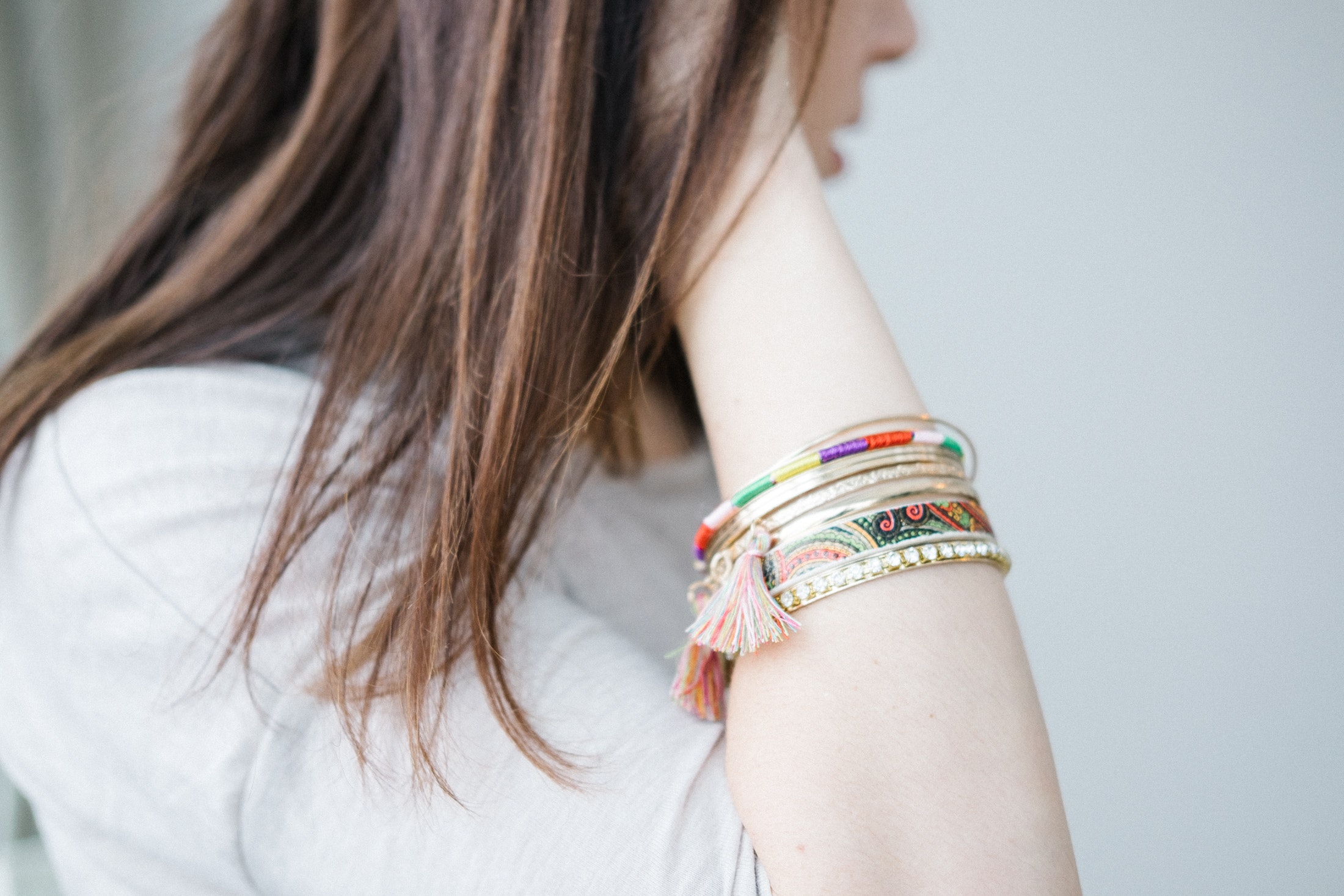
6 Proven Ways to Deal with Hair Loss for Women
It’s true; women like to define themselves through beauty. And the hair is an outstanding feature that complements the beauty in women. Unfortunately, some reasons lead to hair loss in women besides aging, which is, of course inevitable. Hair loss can be quite devastating. It could even lead to low self-esteem in women because healthy and glowing hair makes a woman stand out. However, this doesn’t have to be the case with you if you experience excessive hair loss. There are proven ways to deal with hair loss in women, and this article will cover six of them. Different Ways To Deal With Hair Loss Problem In Woman There are multiple ways to deal with the hair loss problem for women. In this article, you will get the complete idea of it. Some of the essential ways that you can reduce the loss of hair problems in women are as follows:- 1. Essential oils: Essential oils have been used for centuries because of their numerous benefits, including controlling hair loss. There are some essential oils that have proven to work well with hair such as rosemary, lavender, and cypress among others. Such essential oils work efficiently because they have a balancing and regenerative qualities that could help to promote the condition of your scalp, resulting in hair growth. The comprehensive benefits of c60 with essential oils also have made them popular among women, and finding one for yourself shouldn’t prove to be a hard task. When using essential oils with C60, you have to follow the specific instructions of using each oil before applying them to your scalp. 2. Aloe Vera: Another effective way to deal with hair loss in women is by using Aloe Vera. Aloe Vera is one of the natural substances that bring numerous health benefits to our bodies. Its health benefits emanate from the fact that it has antioxidant properties, which help to prevent hair loss in women. We live in a world that is dominated by industries that cause a lot of pollution. These pollutants could affect your hair either by making it dull or making it fall off. However, if you use Aloe Vera on your hair, the antioxidants help to combat these negative effects of pollution. All that is required of you is to cut an Aloe Vera leaf, then squeeze the juice and apply it to your scalp. For the best results, leave it on your hair for about thirty minutes before washing it off. 3. Onions: If you thought onions are only used in the kitchen to improve the flavor of food, then you thought wrong. Onions could also be used to promote healthy hair growth. Most women, however, find it hard to use onions on their hair because of their repulsive smell. But what is a smell if they (onions) deliver numerous benefits to your hair? Onions promote air growth because they are rich in Sulphur, which is proven to boost blood supply to your hair follicles, making them healthy. Additionally, onions have antibacterial qualities that could help to fight off bacteria on your scalp. You should apply onion juice to your hair and leave it on for approximately 30 minutes, then wash it off with water and shampoo. The smell will eventually getaway. 4. Scalp massage: As a woman, the chances are that you worry a lot about hair loss. You can, however, get rid of this worry by ensuring that you massage your scalp. It is something that you should do when you are in the shower, especially when rinsing your hair with some cold water. Ensure to massage the scalp after you have applied your shampoo. The massage should be carried out gently in circular motions. It has been proven to promote circulation to the scalp, enhancing hair growth. 5. Only hair products that are meant to promote hair growth: Today, there are numerous hair products on the market. Of all the brands available, not all are reliable. Some feature false advertising, and they could do you more harm than good. That is why it is advisable to go for a hair product that is meant to enhance hair growth. You should ensure to conduct adequate market research, and it is wise to purchase your hair products from reputable companies. Hair products that promote hair growth should have a lot of minerals. They should also manage to improve blood circulation to your scalp. And they should also contain antibacterial properties. 6. Keeping off hairstyles that pull hair too tight: Hairstyles that are tight tend to pull on your hairline, and they could eventually lead to excessive hair loss. The hairs on your hairline are delicate; therefore, it is imperative for you to avoid hairstyles that could pull them. Even if you have to do braids or ponytails, consult your hairdresser to get a style that is not too tight. Conclusion: Healthy hair is the epitome of beauty in women, and if you have ever experienced hair loss, you know how devastating it can be. You can easily deal with hair loss using the methods mentioned above. You will not regret it. If you previously experienced hair loss and are looking to find the ideal trimmer to promote healthy hair growth, you can visit hairclippersclub.com to learn about the best one for your hair. Read Also: Top 7 Superfoods For Healthy Skin And Hair Fue Hair Transplant. All You Need To Know
READ MOREDetails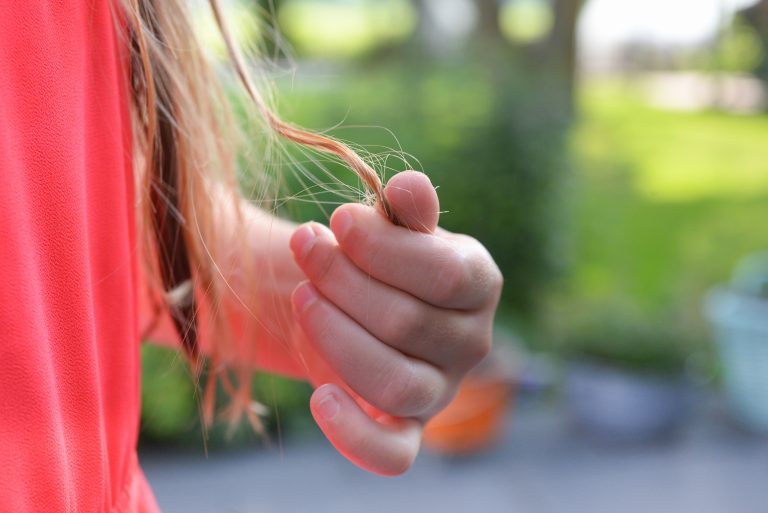
Dealing with the Psychological Impact of Alopecia
Alopecia is a chronic disease that can lead to partial or, more frequently, complete hair loss. It is a disease that affects both men and women, and individuals of all ages. Despite it being a common and wide-reaching disease, very little is known about alopecia. It has no known cause and no known cure for example. Many people, particularly women, find that wearing ladies' wigs helps with alopecia by enabling them to hide their hair loss and maintain their former identity. Some people choose not to cover their hair loss, owning their baldness as a new part of who they are. There is no right or wrong answer. One thing that we do know for sure is that although alopecia is a physical disease, it can have a profound impact on the mental health of those who suffer from it. Struggling with alopecia and the impact this is having on your mood and your sense of self. Here are some handy hints to help you deal with the psychological impact of alopecia: What is the Psychological Impact of Alopecia? Studies have shown that around forty percent of women who suffer from alopecia experience some form of social problems as a result of the depression and anxiety they experience because of their condition. These social problems can include issues within their marriages, families and friendship groups. The problem worsens in the workplace, with 63 percent of women reporting career-related issues as a direct or indirect result of their alopecia. Other psychological problems that sufferers of alopecia are more prone to experiencing include depression, anxiety, and social phobias. Because alopecia is classed as a disfiguring disorder (one that permanently changes your appearance) it stands to reason that some individuals may have to deal with ongoing feelings of loss for their hair as well as issues relating to their self-identity and any changes of confidence that may come with this. It’s important to remember that whilst alopecia doesn’t cause any physical pain, it does lead to emotional and psychological pain and these symptoms should be taken just as seriously. Alopecia is a very serious condition that can completely change your life, and it is important to take the time to acknowledge this and to grieve for your former self, and for the hair that you have lost if you think that this will be helpful for you. What Can You Do? Struggling to cope with the psychological impact of having alopecia? This is completely normal, but there are some things that you can do that will help you to deal with the transition a little better. Firstly, if you think you may be suffering from depression then it’s important to seek help and support. Signs of depression include feeling sad, anxious or empty inside. Lossing interest or pleasure from hobbies and other activities that you used to enjoy. Difficulty sleeping, making decisions or engaging with others. Changes to your weight or appetite. Thoughts of death, suicide, or a general feeling that the world would be better without you in it. The first thing you should do if you experience any of these symptoms is to both talk to those around you and seek the support of your GP. Don’t try to deal with depression alone: the more you can share your feelings with others, the easier your condition will be to treat. If you are struggling to deal with the changes to your self-identity then one solution is to start wearing a wig. Modern wigs are not the ugly, itchy things they were twenty years ago: in fact, many modern wigs are so realistically constructed that no one would ever know you were wearing one. This may help you to feel like your old self and give you the confidence boost you need to go out, socialize, and otherwise live a normal life. It doesn’t matter whether you choose to wear a wig or not. But if you would like to meet with and talk to other people who know exactly what you’re going through then you may find it helpful to join an alopecia support group. You will find alopecia support groups in most major towns and cities across the UK: if you’re struggling to find one then your GP may be able to offer advice. These groups are a wonderful way to learn more about your condition, build a new social circle, and gain the support of individuals who really understand what you’re going through. Read Also: Fue Hair Transplant. All You Need To Know How To Pick The Right Hair Brush For Different Hair Types Top 5 Foods For Healthier And Thicker Hair
READ MOREDetails















